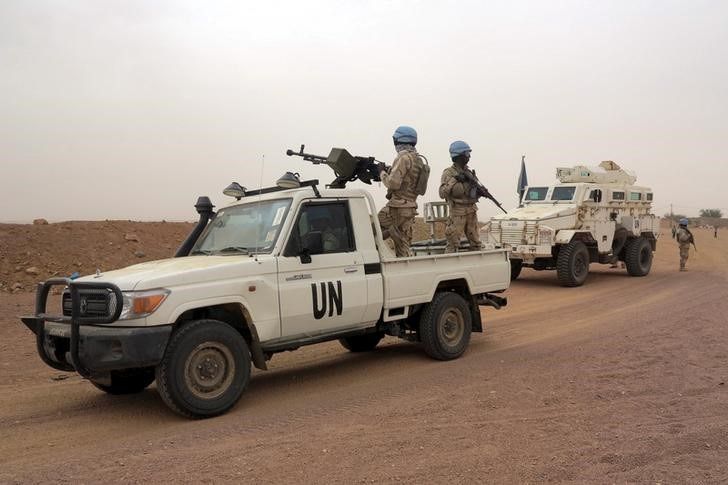Ivory Coast will gradually withdraw its troops and police from a U.N. peacekeeping force in neighbouring Mali, according to a letter seen by Reuters, dealing the latest blow to a mission that saw several Western nations pull out this year.
One of Africa’s most volatile countries, Mali has for a decade relied on regional allies and peacekeepers to contain Islamist insurgents who have killed thousands of people and taken over large areas of the centre and north.
Ivory Coast will no longer replace departing personnel in the MINUSMA force, according to a letter to a senior U.N. peacekeeping official, dated Nov. 11, which was seen by Reuters on Tuesday.
The news comes a day after Britain said it was pulling out 300 troops from the peacekeeping force, following similar withdrawals this year by other Western nations, including former colonial power France.
The decision comes after Mali detained 46 Ivorian soldiers in July, accusing them of being mercenaries. Ivory Coast says they were part of a security and logistics unit working under the peacekeeping mission and has made repeated pleas for their release.
The withdrawal was confirmed by two senior Ivory Coast security sources. MINUSMA and the governments of Mali and Ivory Coast did not immediately respond to requests for comment.
The U.N. Secretary General is to present a report by the end of the year on the future of the mission, which has been significantly constrained by Mali’s junta since it came to power in a 2020 coup.
Ivory Coast is the sixth-largest military contributor to the force, with 857 troops, according to MINUSMA figures. It is the eighth largest police contributor, with 30 officers. MINUSMA is made up of nearly 18,000 personnel.
France pulled its troops out of Mali in August, ending a 10-year mission, after a protracted row about air space, troop movements and Mali’s decision to ally with Russian mercenaries from the Kremlin-linked Wagner Group, hundreds of whom are now working alongside Mali’s army.
The Western withdrawals from Mali this year have caused fears among diplomats that this could increase violence, destabilise neighbours and embolden jihadists.









